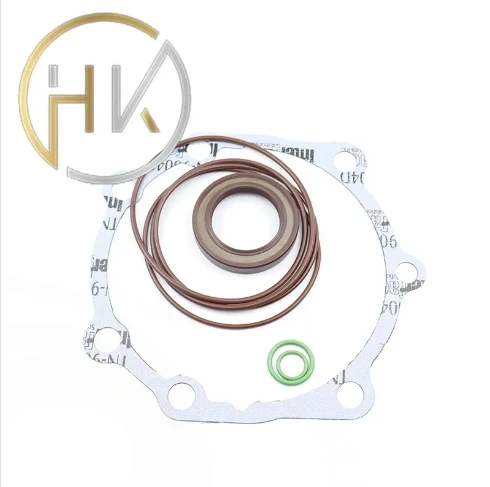નવેમ્બર . 09, 2024 17:32 Back to list
Innovative Solutions for Automotive Motor Sealing Technologies and Applications
Understanding Motor Seals Importance, Types, and Applications
Motor seals play a vital role in the effective functioning of various mechanical systems, particularly in motors and engines. These components are essential for enclosing and protecting internal mechanisms from external contaminants while also preventing the loss of lubricants or other fluids. In this article, we will delve into the importance, types, and applications of motor seals, underscoring their significance in maintaining the efficiency and durability of machinery.
The Importance of Motor Seals
Motor seals serve several key functions that are essential for the optimal performance of engines and motors. One of the primary roles of these seals is to prevent the leakage of lubricants or coolants from internal components. Without effective sealing, fluids can escape, leading to increased friction, overheating, and potential failure of the motor. This can result in costly repairs and extended downtime.
Moreover, motor seals act as barriers against dirt, dust, and other foreign particles that can infiltrate the internal workings of a motor. Contamination from such particles can cause wear and tear on moving parts, diminishing the overall efficiency of the system. Maintaining a clean and well-lubricated environment is crucial for extending the lifespan of motors and ensuring reliable performance.
Types of Motor Seals
Motor seals come in various types, each designed to address specific requirements and applications. The most common types include
1. Gaskets Gaskets are flat sealing solutions made from materials like rubber, silicone, or metal. They are typically used to fill the gaps between two surfaces and prevent fluid leakage. Gaskets are commonly found in engine assemblies, transmission systems, and other areas where two components meet.
2. O-Rings O-rings are circular seals typically made from rubber or elastomeric materials. They provide a tight seal when compressed between two surfaces, preventing the passage of fluids or gases. O-rings are widely used in hydraulic systems, pumps, and automotive applications.
motor seal

3. Lip Seals Lip seals, also known as radial shaft seals, consist of a rubber lip that fits around a rotating shaft. They are designed to prevent the leakage of lubricants while keeping contaminants out. Lip seals are commonly used in rotating machinery, including motors, gearboxes, and pumps.
4. Mechanical Seals These are advanced sealing devices used in applications with high pressures and temperatures. They consist of multiple components and are designed to prevent leakage in rotating equipment like pumps and compressors. Mechanical seals are particularly effective in situations where traditional seals may not provide sufficient reliability.
Applications of Motor Seals
The applications of motor seals are vast and diverse. In the automotive industry, they are crucial for sealing engine components, transmissions, and differential housings. A proper seal not only ensures the efficient operation of vehicles but also contributes to overall fuel efficiency and emissions reduction.
In industrial machinery, motor seals are essential for maintaining the performance of conveyor systems, hydraulic machinery, and manufacturing equipment. Seals in these applications help prevent fluid loss and reduce downtime due to maintenance, ultimately enhancing overall productivity.
Motor seals are also indispensable in the aerospace industry, where they are used in engines, landing gears, and hydraulic systems. Given the stringent requirements for safety and reliability in aviation, the integrity of motor seals is paramount.
Conclusion
In summary, motor seals are critical components that ensure the smooth operation and longevity of motors and engines across various applications. Their ability to prevent fluid leakage and contamination is essential for maintaining the efficiency, reliability, and safety of mechanical systems. As technology evolves and new materials are developed, the prospects for motor seal designs and applications will continue to expand, further enhancing their importance in the engineering landscape. Investing in high-quality motor seals can significantly reduce the risk of equipment failure and maintenance costs, underscoring the need for reliable sealing solutions in today's increasingly demanding industrial and automotive environments.
-
The Trans-formative Journey of Wheel Hub Oil Seals
NewsJun.06,2025
-
Graphene-Enhanced Oil Seals: Revolutionizing High-Pressure Oil Sealing
NewsJun.06,2025
-
Future of Hydraulic Sealing: Advanced Intelligent TCN Oil Seals
NewsJun.06,2025
-
Don’t Let a Broken TCV Oil Seal Ruin Your Day
NewsJun.06,2025
-
Bio-Inspired Dust Seals for Better Sealing Performance
NewsJun.06,2025
-
Biodegradable and Sustainable Hydraulic Seal Materials
NewsJun.06,2025
-
Top Oil Seal Solutions for Your Industrial Needs
NewsMay.22,2025
Products categories
















